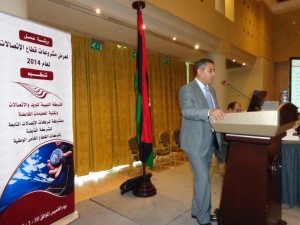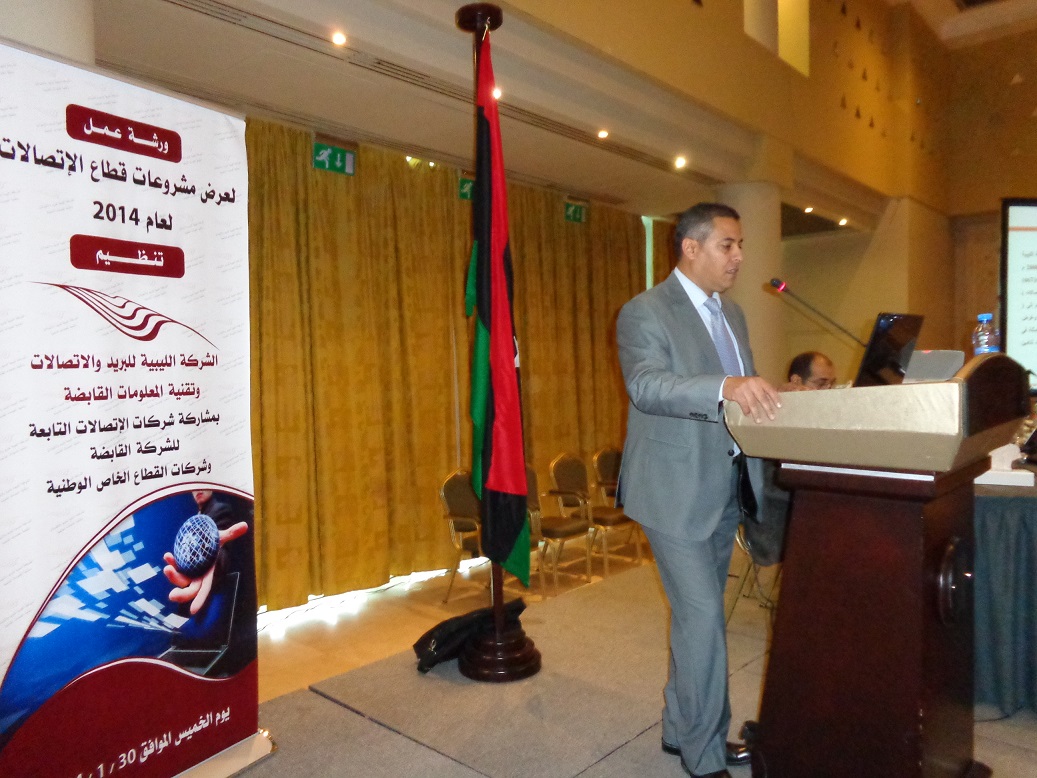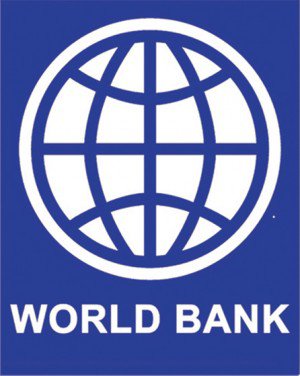By Sami Zaptia.

Tripoli, 30 January 2014:
The Libyan Post Telecommunications Information Company (LPTIC) the holding company that controls all . . .[restrict]of Libya’s state-dominated ITC companies, held a seminar at the Corinthia hotel on Thursday during which its seven companies previewed all their planned projects for 2014.
Besides informing the Libyan public of its plans, the aim of the event was to also thank its current private sector partners as well as communicate the message to newcomers that state-controlled ITC sector projects are open to private sector participation.
Seven of LPTIC’s companies, Libyana, LTT, Hatif Libya, Al-Madar, Al-Jeel Al-Jadeed and Bareed Libya made brief presentations of their planned 2014 projects to improve and develop Libya’s ITC sector.
The LPTIC reviewed progress on its various telecommunication lines with Europe and the rest of the world such as the Sillphium line with Greece, the Europe-India line, the line with Sudan and Tunisia as well as the recently announced line between Tripoli and Benghazi.
In its presentation, the Libyana mobile phone company said that it planned to carry out major development work on its network which it admitted was aging and in need of updating.
Libyana said that it planned to develop its 60 solar power generation capacity sites especially in the more remote areas there no electricity network exists. Many of these solar installations were either destroyed or stolen during and after the revolution.
Other Libyana projects planned for development in 2014 will include electronic charging, the retransmission of signal and increased sales points.
LTT (Libya Telecommunications and Technology), the main provider of internet service in Libya informed for its part that it will be upgrading its ADSL2+ phase 3 for the provision of internet service through telephone landlines.
This expansion programme will take place through 186 targeted telephone exchanges, which LTT admitted will depend on its partner and landline operator, Hatif Libya, upgrading targeted exchanges.
Hatif Libya (www.hlc.ly), the landline telephone operator, announced that it will be working on the next generation network of landlines using fibre optics to improve and increase capacity. HLC was optimistic about this project, saying that it should commence in February and complete in May 2014.
HLC also announced that it will be expanding its wireless landlines by introducing 200,000 new lines. It will also be improving its line network to the south of the country all the way to the Sharara oilfield and Sebha. The telephone network that runs along the General Electricity Company of Libya’s network (GECOL) will also be improved.
However, answering quite a lot of public criticism and demand for improved internet service provision, HLC announced that in 2014 it hopes to deliver 200,000 fiber optic connections to Libyan homes, proving a superior service to the current copper wire-based service.
Al-Madar mobile phone company, the older but smaller of the two main mobile phone providers, said that it will be upgrading its Second Generation service to the Third Generation HSPA+ (3.75). This will be rolled out in 45 cities over 2500 sites in phases. This upgrade will improve mobile phone internet connectivity especially for today’s smart phones.
Al-Madar too plans to improve and upgrade its aging exchanges to increase capacity. It also has 180 solar powered remote sites, 100 of which were destroyed and need re-establishing. Al-Madar also wants to renovate its towers established since 1996 in over 100 sites.
Al-Jeel Al-Jadeed announced that it plans to connect over 30 oilfields in about 9 months in 2014 with Next Generation Networks (NGN) fiber optics . It also plans to create HI-Fi Hotspots in 23 university, hotel, airport, office and shopping centre sites. It also plans to install air conditioning in all 204 sites where it is implementing NGN.
Finally, Bareed Libya, Libya’s post office said that it will be creating a new data centre and 250 new offices all over Libya as well as GPS for its 100 vehicles and an ERP system for the company.
The LPTIC said that it hoped that by informing the private sector, companies in the private sector that wished to bid for projects could plan ahead and prepare themselves.
Questioned off the record by Libya Herald regarding the timelines for the implementation of the 2014 projects, company representatives admitted that the security situation would have an influence on the various completion dates.
There was some criticism from participants regarding issues of transparency and outsourcing to the Libyan private sector.
Whilst it was agreed that a lot of the civil contracting work was being given out to local Libyan companies, speakers had hoped in the post February 17th era the LPTIC group of companies could do more in terms of the quantity and quality of work put out to tender.
They hoped that the higher value work, including the import of high value goods, equipment and machinery could also be privatized. There were also demands for a better tendering process.
Questions were also raised about the insistence by the LPTIC’s group of companies on using the legacy international companies inherited from the Qaddafi regime. The sentiment was that new international companies should be given a fair opportunity to either work alongside or replace some of these companies.
[/restrict]








